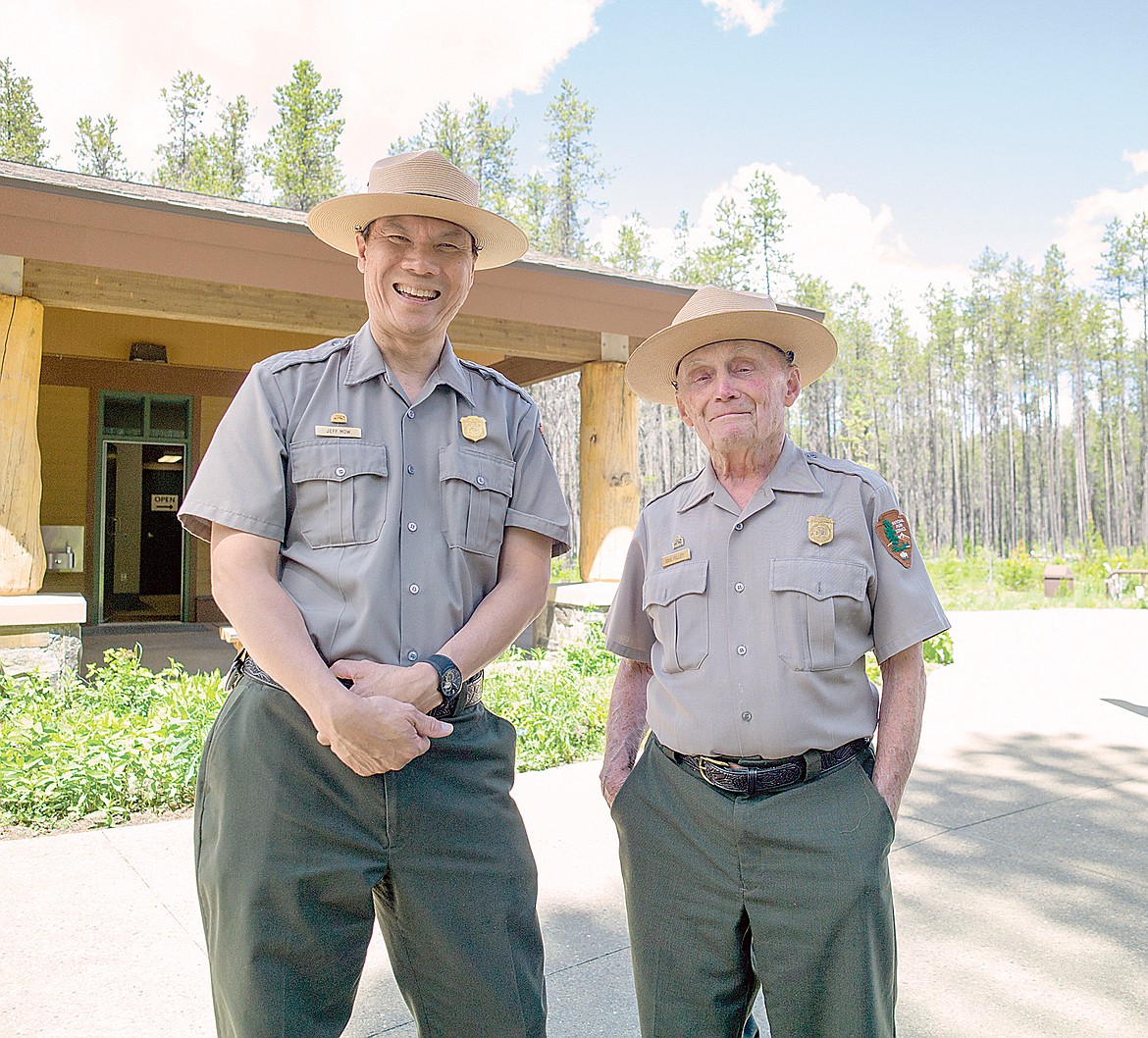Mow retires, reflects on future of Glacier management
By CHRIS PETERSON
Hungry Horse News
He saw the completion of the multi-year Going-to-the-Sun Road project. The loss of Sperry Chalet to wildfire and the triumphant rebuild of the structure. Managed Glacier National Park during three major wildfire events. Saw record crowds and steered the Park through a pandemic.
But for park superintendent Jeff Mow the accomplishment he’s most proud of is the relationship the Park Service built over the years with the Blackfeet Tribe, he said last week.
Mow recently announced his retirement.
He noted that over the years the park has worked closely with the tribe on shared interests, including getting more tribal youth engaged in the park, working with them on bison reintroduction and tourism as well.
The tribe and the Park Service would both like to see a free-ranging bison herd that would share both Park Service and tribal lands. To that end, they are working first on a comprehensive habitat and elk study. The park and the tribe will look to collar some elk later this winter or early spring.
Mow was named superintendent of Glacier in 2013. He said he also enjoyed building relationships with the community and the Flathead over the years, noting that tourism is moving from pure promotion to stewardship.
Dealing with Covid-19 was particularly challenging, as the east side was closed to avoid spreading coronavirus to the Blackfeet and meanwhile, the park was short staffed due to housing restrictions.
Still, it managed and this year, it will come close to, if not break, visitation records.
What does the future hold?
Mow said he doubts things will ever go back to where they were before the pandemic. While no one knows for sure, the popularity of national parks is expected to increase in the future.
He noted the park is not immune to problems the rest of the country is seeing, from supply chain issues to a lack of housing and staffing shortages.
He said he was encouraged that Congress was recognizing the Park Service needs more staff, but the problem, like most employers, is going to be where to house them.
Sprinkle in climate change, overcowding and the hot summers rife with wildfire and there’s some real challenges ahead.
“All of these conditions are well outside of our control,” he said.
He cited a theory by musician Yo-Yo Ma, who talks of “punctuated equilibrium” — when large and rapid change can burst into the world over a short period of time and cause a dramatic realignment of thinking and experience.
That’s what Glacier is experiencing.
“I think he (Ma) got it right,” Mow said. “We’re in this period of significant transition. I don’t think we’re going to go back to doing things the same way before Covid.”
He credited the staff at Glacier for being flexible and adaptable this year with the reservation system, noting it implemented the system for the Going-to-the-Sun Road in matter of months.
“It was a massive pivot for us,” he said.
He commended the staff.
“I’m quite proud of the outreach we did,” he said.
With the reservation system, Glacier set up a “ticket corral” at headquarters to turn people around and offer them guidance on their trip to the park if they didn’t have a Sun Road ticket.
“We made contact with over 350,000 cars without reservations,” he said.
Most folks, he said, were happy just to talk to a real human being, as the ticket system itself was done exclusively online through the government’s recreation.gov website.
“They were grateful to talk to a live person,” he said.
Mow was not in the park this summer, however. In April he took a detail as acting director for the Alaska region of the National Park Service.
“Pete (Webster) and crew did a fabulous job when I was away,” he said.
He’ll finish up his tenure there in December and then return home to Whitefish.
He said he plans on staying in Montana.
“I want to do a lot of hikes I’ve never been able to do,” he said.


